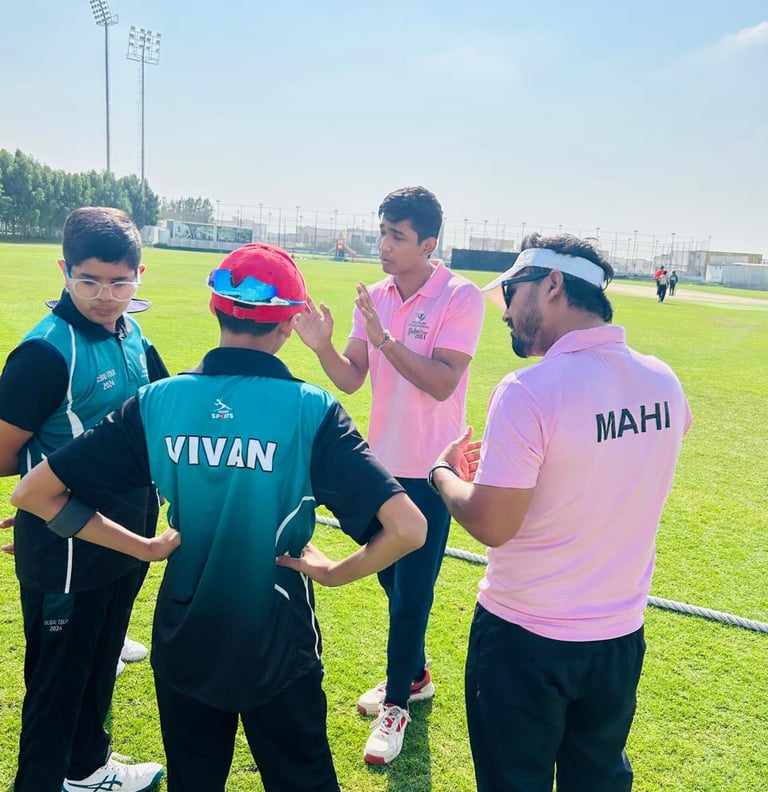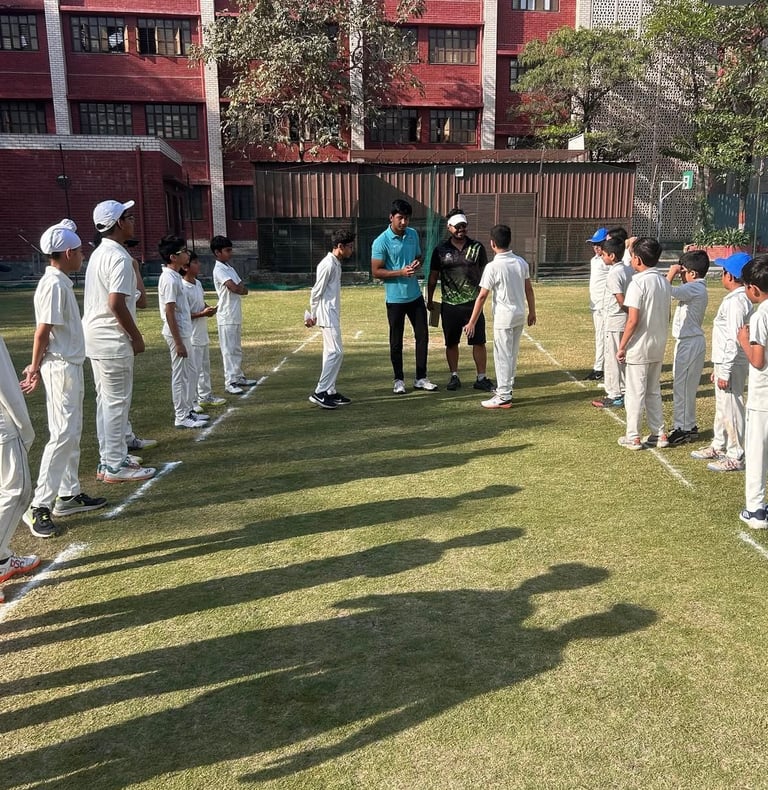The Psychology of Fun in Youth Sports
Why Enjoyment Matters More Than Winning
Pranoy Borah
What do we really mean when we talk about fun in cricket? This is a question I have spent the last few years trying to understand, both from my own perspective and from those around me. My journey over the past year and a half as a coach at Spectrum Cricket Academy has given me an entirely new outlook on this idea.
During my playing years, I was caught up in the race to be the best. I thought that was the sole purpose of my journey. Eventually, the pressure led to burnout, and I stepped away from pursuing cricket as a career. Somewhere along the way, I lost sight of the reason I started playing in the first place: because I loved the sport. That realization became my motivation to coach. I never want a child to lose that love for the game in their pursuit of success. My constant lesson to my students is simple, just being on the ground and doing what you love should make you happy, regardless of the result. The journey of a cricketer should not end in mental exhaustion because things didn’t go our way. It should end only when the body itself says, I am done, when every muscle and bone feels satisfied with the effort. Cricket has given me some of my closest friendships, bonds that remain strong even today. The common thread among many of us, however, is that somewhere we forgot the love of the game. For some, cricket became more of a career than a source of happiness.
When one of my students has a bad day on the field and feels upset about their performance, my response is always: “Don’t carry the game to bed with you—leave it on the field.” This rule applies to both failure and success. Once you step out of the ground, another part of life begins.




Why Fun Matters More Than Winning
The core reason I emphasize fun over winning is simple: we want children to carry their passion forward, not as a burden but as a gift. This is where sports psychology plays an essential role. Understanding the fun dynamic helps in motivating young athletes to continue longer, to openly talk about challenges, and to develop strategies to overcome them. With professional psychological support, athletes can improve performance, manage anxiety, build resilience, and most importantly, develop a positive attitude toward the game.
One of the biggest challenges I’ve faced as a coach is the expectation for instant results. The demand for quick improvement often reduces the element of fun. Similarly, the obsession with winning diminishes another crucial aspect of cricket—teamwork. As players grow and chase individual success, they sometimes forget that cricket is a team sport, involving eleven players, not just one.
Coaching with Communication
One of the best parts of working with young players is that they are still open to change. Their views can be shaped for the better. Many of the drills I run with my students involve active communication, which I believe is the most effective way to identify issues and understand different perspectives. Every child has something to teach us, no matter how small and that exchange makes the sport more enjoyable and enriching.
At Spectrum, all of us coaches share the same ideology. We believe that no matter how much time a child can devote to cricket in a week, that time should feel like an escape—a space where they feel free, creative, and truly at home. At the end of the day, if they go to bed feeling content, then we have succeeded as coaches.
The Role of Parents
Teaching the psychology of fun is not just about children, it begins at home. Parents play a major role in shaping their child’s sporting journey. Encouragement, support, and recognition of small milestones help children feel valued.
Unfortunately, one of the most common challenges I face is the competitiveness among parents. This not only undermines team spirit but also creates unnecessary pressure and negativity. Parents must realize that every child has a unique potential and growth trajectory. The priority should always be to have fun and enjoy the process, not to compare or compete.
A Message to Young Cricketers
To the budding cricketers I coach, my advice is always the same: work hard, enjoy every moment of the game, embrace losses as learning opportunities, and focus on the journey, not just the result.
Conclusion
To me, sports is pure joy. It is an experience everyone should witness at least once in their lifetime, because of the invaluable lessons it offers and the personality it shapes for the future. Cricket and sport in general, is not just about results. It is about growth, friendships, resilience, and above all, love for the game. It is a journey meant to be cherished.
Connect
Stay updated with our latest insights.
Contact
theplaybooksportinfo@gmail.com
9999038304
© 2025. All rights reserved.
